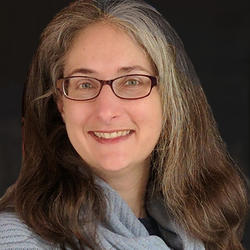Bonnie Epstein
Bonnie Epstein received her undergraduate degree in geology/biology from Brown University and her PhD in geological oceanography from the University of Rhode Island. Her interests lie at the junction of science, art and education. As a principal investigator for the New England Aquarium (Boston) for over seven years, she helped develop, implement and evaluate programs and exhibits for informal scientific education. During that time, she served as director for the New England Aquarium’s Newport Exploration Center—a small science museum in Newport, RI, currently run by Save the Bay—and led the aquarium’s NSF-funded exhibit on jellyfish as environmental indicators (Amazing Jellies).
After leaving the aquarium, Epstein founded the Rhode Island Museum of Science and Art (RIMOSA) and served as its executive director. RIMOSA was a hands-on, interactive museum, designed to highlight key commonalities between science and art—curiosity, observation, experimentation and communication—and inspire older children and adults. After more than a decade of providing what would later be known as STEAM outreach programs, mechanically interactive exhibits and experiences on site, Epstein oversaw the absorption of RIMOSA into the Rhode Island Computer Museum (RICM), where she now serves as a board member.
Epstein has served since 2011 as part-time faculty at RISD, where she enjoys teaching a variety of solution-based science courses focused on the large problems of our time, including climate change and water pollution/scarcity. She also is proud to serve on the group RISD Initiative for Sustainability and the Environment (RISE).
Academic areas of interest
Epstein is currently focused on issues of sustainability and education.
